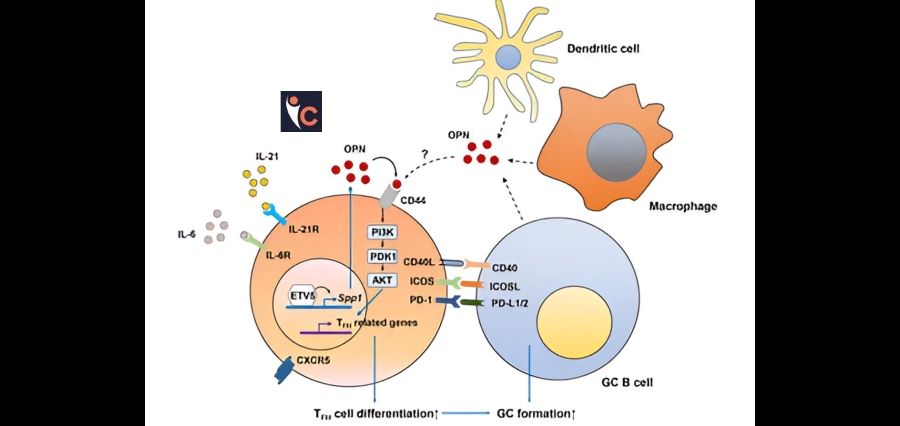A research team, including Professor Yoontae Lee and Ph.D. candidate Jiho Park from the Department of Life Sciences at Pohang University of Science and Technology (POSTECH), has discovered that a specific protein promotes the development of systemic lupus erythematosus (SLE).
B cells, key components of the body’s immune system, produce antibodies to combat pathogens such as viruses. T follicular helper (TFH) cells assist B cells in generating these antibodies. However, an overabundance of TFHs can cause B cells to become overly active, resulting in autoimmune diseases. In these cases, B cells mistakenly recognize the body’s own tissues and cells as pathogens, producing autoantibodies even in the absence of external pathogens.
SLE, one of the most prevalent autoimmune diseases, is characterized by a butterfly-shaped red rash and arthritis that primarily affects the nose and cheeks. The symptoms and affected immune cells vary from patient to patient, and the cause and underlying mechanisms are not clearly understood, complicating personalized treatment.
Previous research by Professor Yoontae Lee’s team suggested that ETV5, a specific transcription factor expressed in T cells, promotes the differentiation of T cells into TFH cells, potentially leading to SLE. In this study, the team conducted experiments in both mice and humans to confirm this hypothesis.
In ETV5-deficient SLE mouse models, autoimmune symptoms such as autoantibody concentrations, immune cell infiltration into body tissues, renal glomerulonephritis, and the development of TFH cells were reduced. The team discovered that ETV5 enhances the expression of its target protein, osteopontin (OPN), which in turn activates the AKT protein, leading to the differentiation into TFH cells.
The researchers further confirmed that in human T cells, the differentiation into TFH cells is also regulated by the levels of ETV5 and OPN expression. Aligning with findings from animal models, ETV5 and OPN were expressed at higher levels in SLE patient models compared to the general population. Additionally, disease activity and blood autoantibody concentrations were generally proportional to the levels of ETV5 and OPN expression.
Professor Yoontae Lee, who led the study, said, “We have identified a mechanism of SLE pathogenesis involving ETV5 and OPN in real-world experiments. We hope that further research will lead to the development of ETV5 inhibitors that regulate TFH cell development to help treat SLE patients.”
Read More: Click Here










